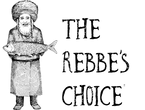In May of 1810 a fire broke out in the town of Breslov. After the flames were extinguished Rebbe Nachman and a few of his students journeyed through the rubble that once was the town square. Rebbe Nachman himself lost his house in this fire and for this reason he moved to Uman where he passed away a few months later at the age of thirty six. During their tour through the devastated streets of Breslov they witnessed a man weeping bitterly as he rummaged through the rubble of his home to find a few un-scorched pieces of wood with which to begin building himself a new home. Said Rebbe Nachman, “Do you see this man? His house burned to the ground but he does not give up. He gathers together what he needs to begin anew. It is the same in regard to spirituality; the fires of the Yetzer Horah may have ruined us, yet we must not surrender! We must search within ourselves for a few good deeds, even just one good deed. These unscathed deeds will surely give us what we need to start rebuilding.”
Korach made a pretty big mistake. Korach and his supporters began a rebellion against Moshe and Aharon accusing them of many things, one of which that Moshe was placing Aharon over everyone else since he was the only one who did the Avodah in the Mishkan. The Midrash tells us that Moshe told Korach “Hashem set boundaries in this world. Just like you cannot undo the separation between day and night you cannot undo the fact that Aharon has been separated to do the Avodah in the Mishkan.” (Bamidbar Rabba 18:7). Just like there is a specific time for day and a specific time for night, each person has their specific purpose in this world. Notice that Moshe did not perform the Avodah in the Mishkan either. Yet Rashi tells us (16:7) that Korach was a wise man, how could he not understand that each and every person is an individual with their own purpose in life? The Gemara in Chullin (127a) can help us figure it out, Rabbi Akiva explains the pasuk, “How great are your works,
The reason Korach was unable to realize that each person has their own unique mission is that Korach was not being himself, he was not being who he really was and he wanted to be someone else. We each have a purpose we were put on this world for, sometimes we can get confused and become someone we are not. This is so dangerous because not only does it take us away from our true purpose in this world, like Korach we will start preventing others from their true purpose. The Kotzker Rebbe, Rabbi Menachem Mendel of Kotzk said, “If I am I because you are you, and you are you because I am I, then I am not I and you are not you. But if I am I because I am I, and you are you because you are you, then I am I and you are you.” Put simply the Kotzker is saying, if I am only who I am because you are being who you are and you are only you because of who I am; that is wrong, for we should not be a person we are not, and even if we think we are ourselves, we are not if it is only because of someone else. But, if you are being yourself completely then that is the best thing because now you are not impeding on others. But how could we find our “I” our inner self, our real self? We have to find the handiwork of God within us, that handcrafted Neshama He blessed us with. Rav Moshe Korbiner teaches on the pasuk, “You shall repent through God” (Hoshea 12:7), that to repent through God means to find the God within us, that spark, that Soul – that purpose. Like Rebbe Nachman related in the story, even in the midst of all the falsehood that burnt us in the past we have to search for that unscathed portion of our self. And there, there is our purpose that God so blessed us with and we can build anew.


